Abstract
Forensic medicine is medicine as applied to the problems of the law. The origins of both are hidden in the mists of antiquity, dating from the beginnings of family and tribal life. Recorded human history goes back for 6000 years. Sumeria, Babylon and Egypt all contributed to the development of forensic medicine. Imhotep was probably the first real medicolegal expert. Hippocrates, the Greek physician, and Galen, the Roman, made considerable contributions. Little advance was made during the millenium of the Dark Ages. But Renaissance medicine gave this branch of medicine an impetus in the seventeenth, eighteenth and nineteenth centuries, and in the twentieth, interest in forensic medicine is worldwide. The physician, the coroner, the pathologist, the medical specialist and the forensic laboratory contribute to the investigation of crimes against the person, and to the solution of such problems as identification, untoward deaths, apparent drowning and many others.
Full text
PDF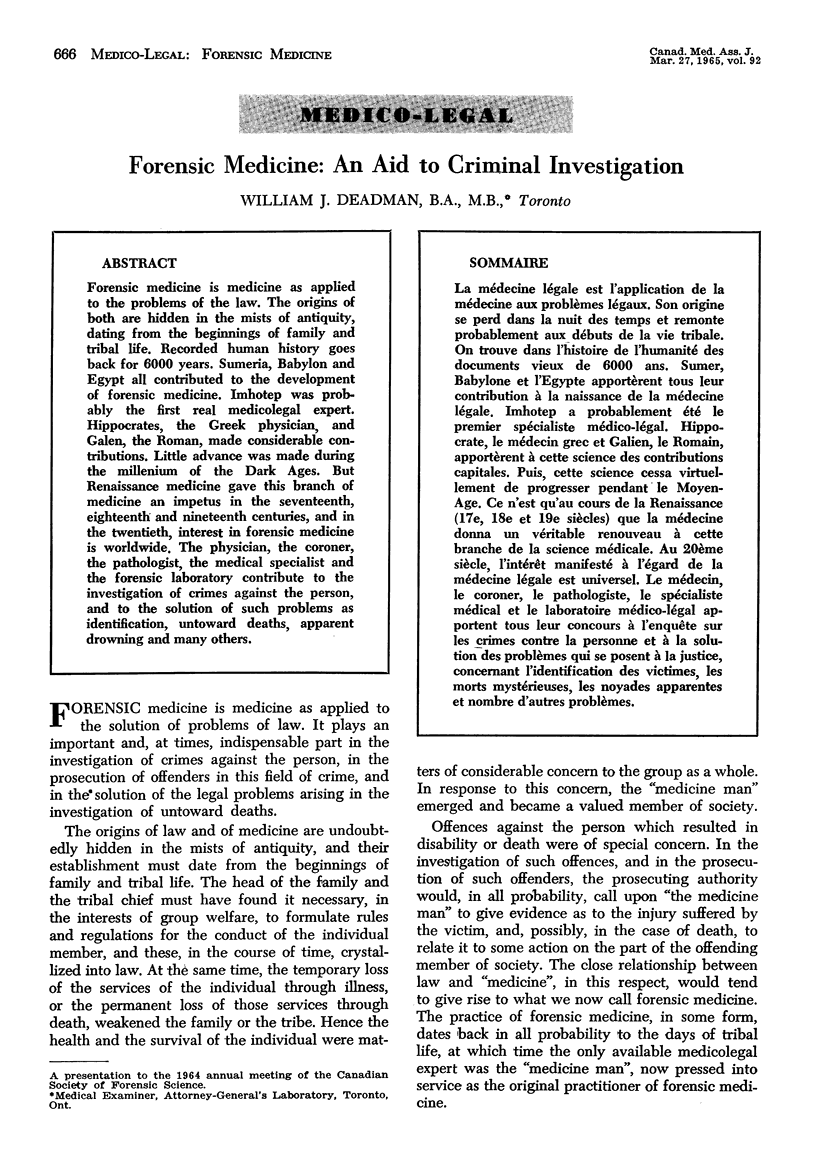
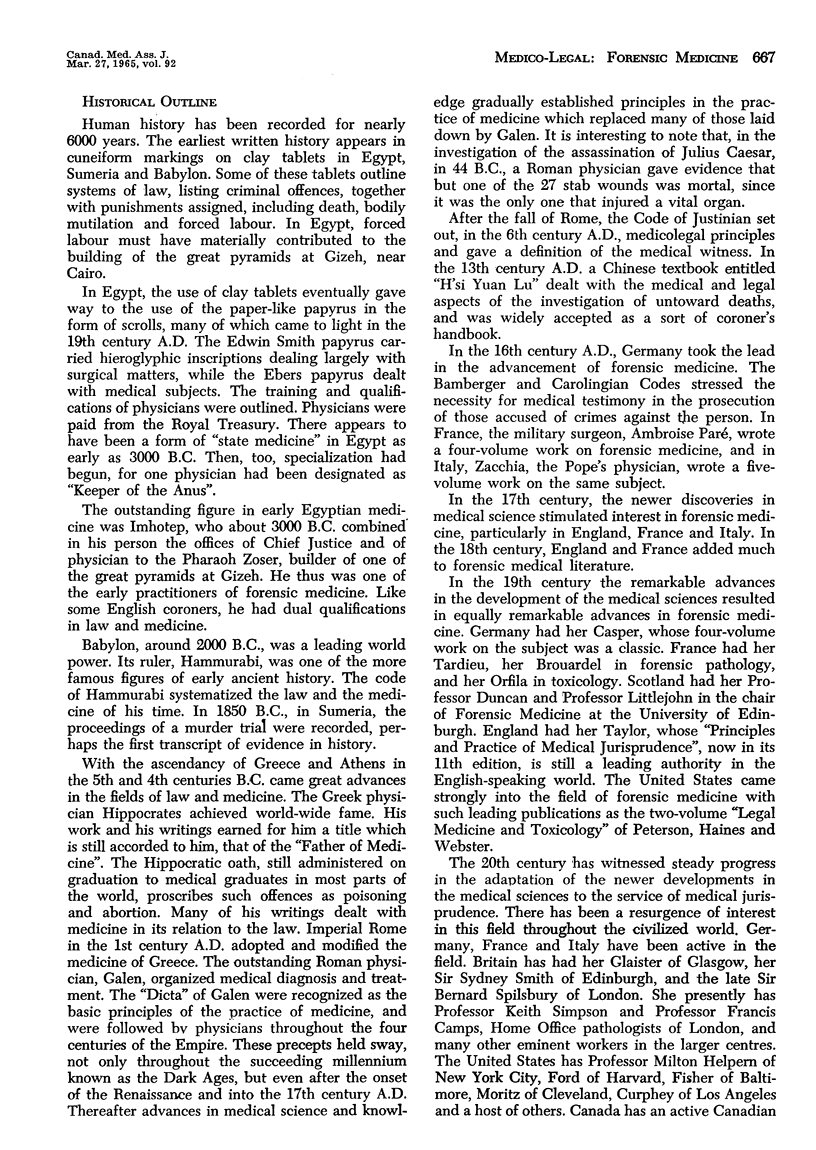
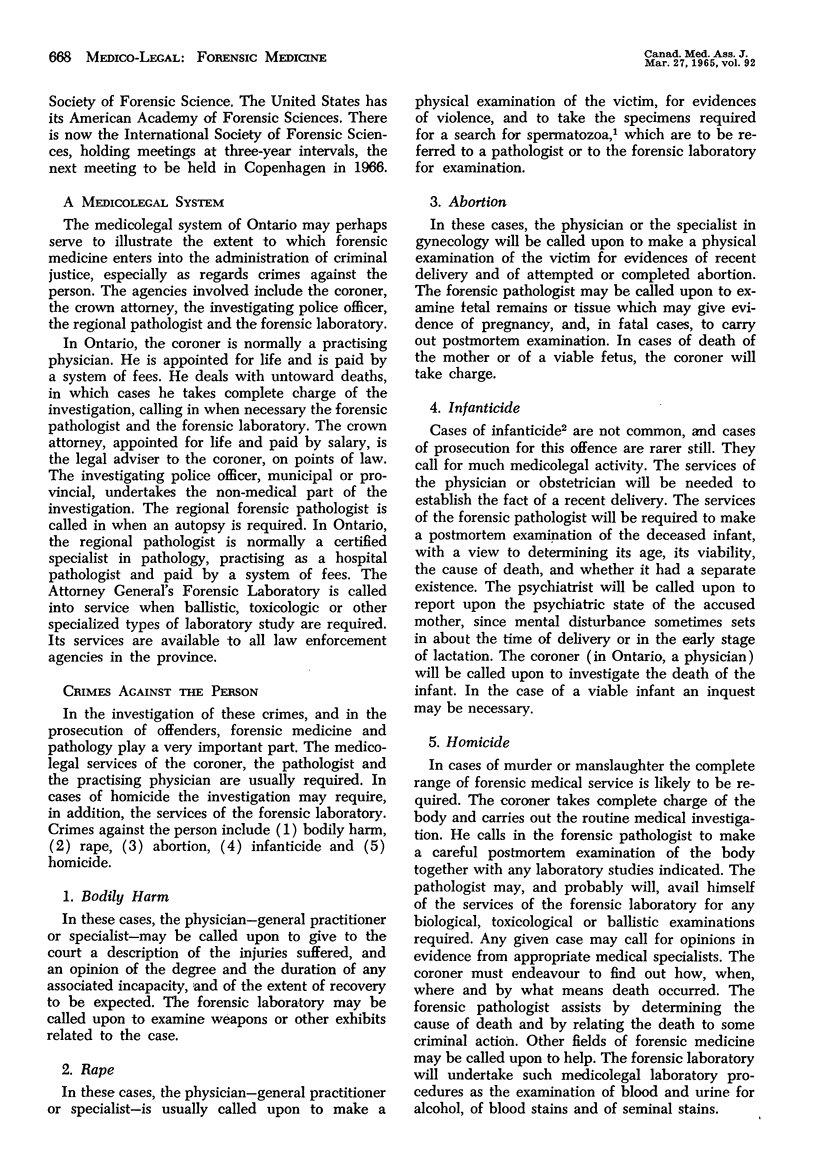
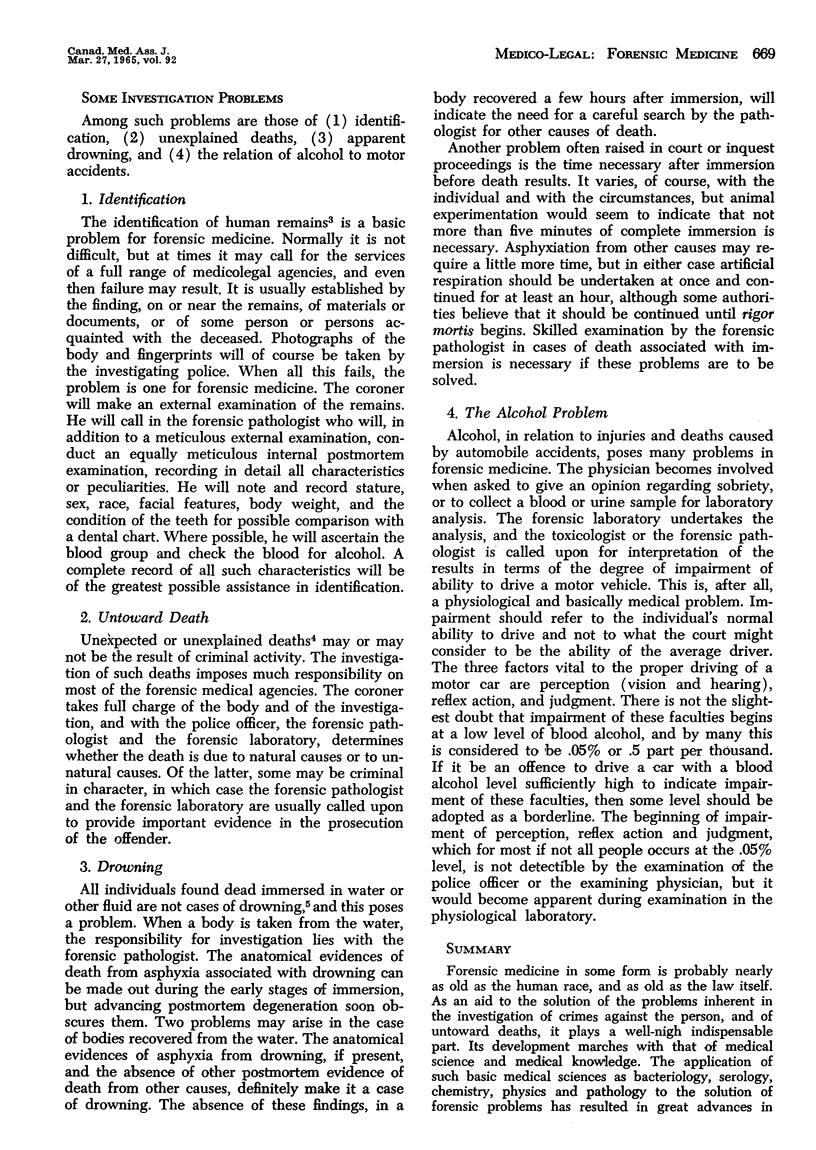
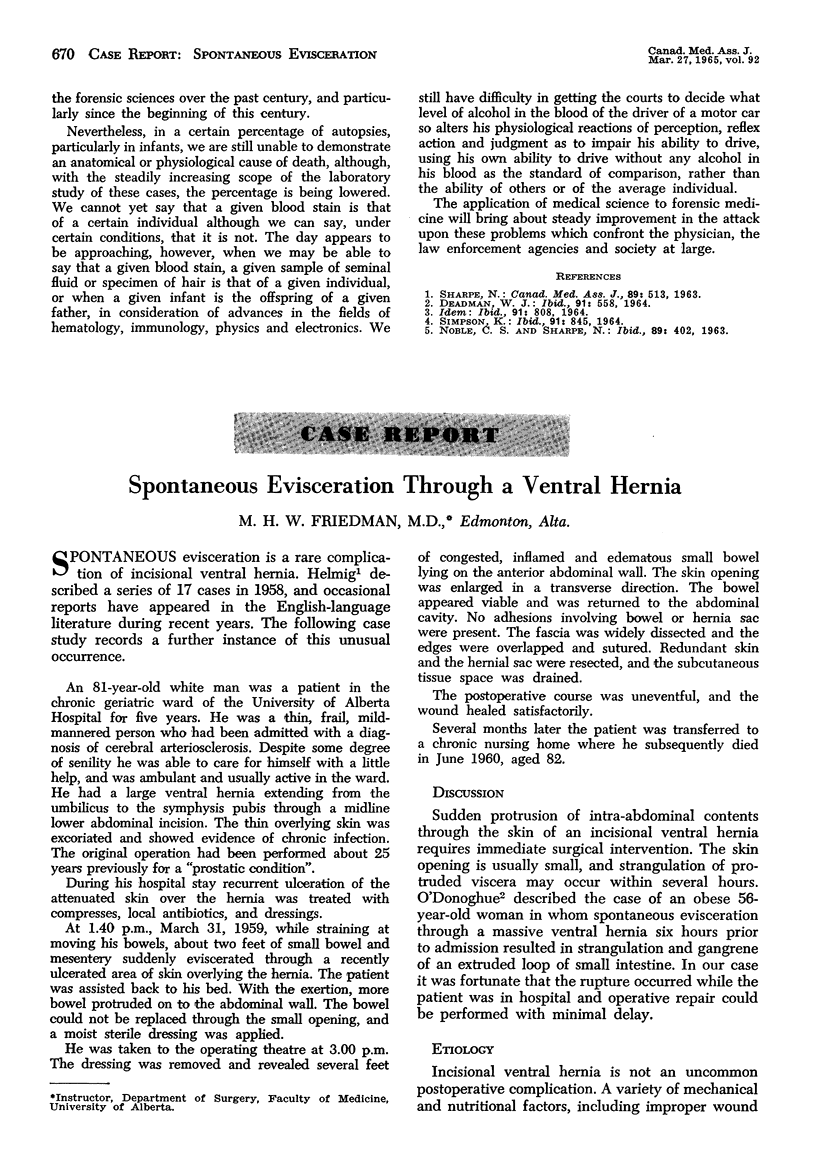
Selected References
These references are in PubMed. This may not be the complete list of references from this article.
- DEADMAN W. J. INFANTICIDE. Can Med Assoc J. 1964 Sep 5;91:558–560. [PMC free article] [PubMed] [Google Scholar]
- DEADMAN W. J. THE IDENTIFICATION OF HUMAN REMAINS. Can Med Assoc J. 1964 Oct 10;91:808–811. [PMC free article] [PubMed] [Google Scholar]
- NOBLE C. S., SHARPE N. DROWNING: ITS MECHANISM AND TREATMENT. Can Med Assoc J. 1963 Aug 31;89:402–405. [PMC free article] [PubMed] [Google Scholar]
- SIMPSON K. THE INVESTIGATION OF OBSCURE DEATHS. Can Med Assoc J. 1964 Oct 17;91:845–850. [PMC free article] [PubMed] [Google Scholar]


